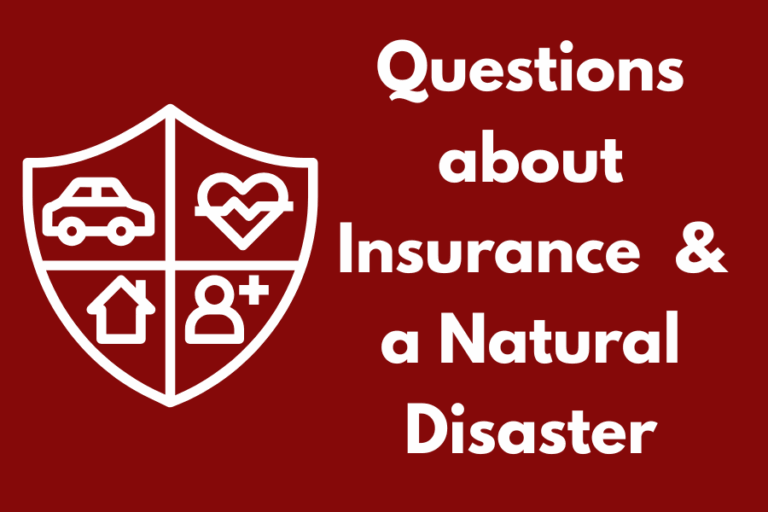David Westerdahl, PNA Area 10 Rep and Emergency Prep and Response Coordinator, visits with local insurance professionals to answer the question – “when Disaster Strikes—Is Your Insurance Ready?” David gathered such a wealth of information, we’ll be publishing Part II in the July newsletter.
Question: Can you talk about typical home insurance policies in our area and “riders” on home policies for floods, earthquakes, and wildfires?
Answer: In our area, most standard homeowners policies cover things like fire, wind, theft, and liability, but not floods or earthquakes. There is riders and are separate policies. Flood and EQ are typically separate policies, not “riders,” though a few companies still offer earthquake as an add-on (it’s rare these days).
- Flood insurance is offered through FEMA or the National Flood Insurance Program, with a max of $250,000 in dwelling coverage. It’s important to know that a “flood” doesn’t mean water from a broken pipe or leaky roof. For it to be covered, the water has to come from outside—like rising rivers or heavy surface runoff—and affect two or more properties or two acres of land.
- Earthquake insurance is considered catastrophic coverage meant for big events like the one predicted for the Pacific Northwest. Deductibles are much higher (typically 5–25% of your home’s insured value).
* Example: If your home is insured for $500,000 and your deductible is 15%, you’d pay $75,000 out-of-pocket before coverage kicks in.
As far as ridders or additional coverages go I would recommend that everyone has water back up coverage. This is the number one coverage that gets paid out in our area in the winter.
Question: How should a homeowner think about these “riders” in our area, especially if they have to make a tough choice between these due to cost?
Answer: It is said that insurance is there to help you sleep at night, it’s personal, and what feels right will vary. With that being said here is my option:
Flood insurance can be expensive and limited. I don’t carry it myself, but I do recommend it if you live in or near a designated flood zone. You can check your flood risk here: FEMA Flood Map
Earthquake insurance While we hope the government would step in if a major earthquake hit, we can’t rely on that. In most cases, federal aid is limited to things like temporary housing, unemployment assistance, or a small lump sum, not nearly enough to rebuild your home. The reality is, without earthquake insurance, many homeowners would face foreclosure or even bankruptcy.
The good news is that earthquake coverage can be inexpensive depending on your home’s value. There are lots of flexible options, and most agents can help you find a policy that fits your needs and your budget.
Question: What are some things you hear from homeowners that they wish they knew before an emergency occurred?
Answer: Take inventory of everything. It’s advice we hear all the time, but let’s be honest, most of us still haven’t done it. Just do it! Its as simple as walking through your home with your phone and take a video. Open every drawer, every cabinet, every box…everything! Don’t forget the garage and storage areas too.
After a major loss, your mind is not clear. Having a video to refer back to helps you remember what you had and makes things much easier when working with a claims adjuster. Big claims can take time, but having visual proof of your belongings can make the entire process faster and much smoother.
Question: Should a homeowner consider additional insurance for special collections of value like jewelry, art, wine, firearms, etc?
Answer: Yes. Most homeowners policies have set limits for items like jewelry, art, wine, or firearms. If you own anything valuable in these categories, it’s a good idea to talk to your agent about what your policy covers. If the item is worth more than the standard limit, you’ll want to get it appraised and schedule it separately on your policy.
This ensures you’re covered for the full value and in many cases, it also protects against things like “mysterious disappearance,” which wouldn’t be covered otherwise.


